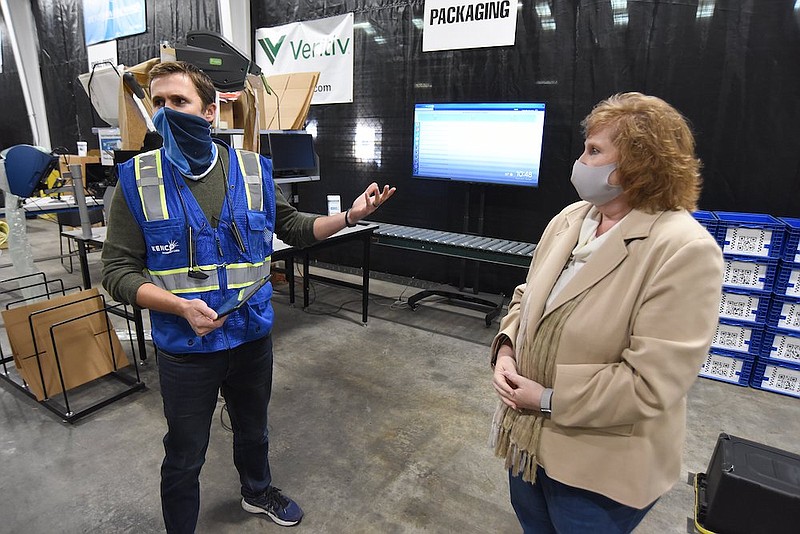Kenco Logistics adds warehouse in southern California
Kenco Logistics, one of North America's leading third-party logistics (3PL) providers, is opening a new multi-client facility in Perris, California.
This new 397,000-square-foot warehousing and distribution services facility joins other shared facilities operated by Kenco near the hub of Los Angeles. The complex is supported by warehouse management solutions (WMS) and Kenco's own LoadProof application, which works to eliminate chargebacks via image capturing in the warehouse.
"When combined with the current Perris facilities, this additional distribution center brings us more scalable and multi-client customer space in Southern California," said David Caines, chief operating officer for the Chattanooga-based Kenco Logistics. "The new shared facility allows us to help organizations share labor in a tight labor market and navigate fluctuating demand to surpass consumer expectations."
Mortgage rates stay below 3%
Mortgage rates fell slightly this week, marking their third straight week below 3% amid signs of the recovering economy's strength.
Mortgage buyer Freddie Mac reported Thursday that the average for the benchmark 30-year home-loan rate eased to 2.96% from 2.98% last week. At this time last year, the long-term rate was 3.26%.
The rate for a 15-year loan, popular among those seeking to refinance, slipped to 2.30% from 2.31% last week.
Experts are expecting mortgage rates to increase modestly in the short term, while remaining at low levels in light of the Federal Reserve's goal of keeping its key interest rate near zero until the economy recovers from the pandemic.
Jobless claims fall to a pandemic low
The number of Americans seeking unemployment aid fell last week to 498,000, the lowest point since the viral pandemic struck 14 months ago and a sign of the job market's growing strength as businesses reopen and consumers step up spending.
Applications declined 92,000 from a revised 590,000 a week earlier. The number of weekly jobless claims - a rough measure of the pace of layoffs - has declined significantly from a peak of 900,000 in January as employers have ramped up hiring.
The pace of applications is still well above the roughly 230,000 level that prevailed before the viral outbreak tore through the economy in March of last year.
Productivity rebounds to a 5.4 percent rate
U.S. productivity posted a sharp rebound in the January-March quarter after having fallen in the previous quarter. Labor costs declined slightly.
The Labor Department reported Thursday that productivity increased at an annual rate of 5.4% in the first quarter, recovering from a 3.8% rate of decline in the fourth quarter of last year. Labor costs fell at a 0.3% rate in the first quarter following a 5.6% jump in the fourth quarter.
It was the biggest quarterly rise in productivity since an 11.2% surge in the second quarter of last year, a gain that reflected the fact that output was not falling as fast as the labor market was shrinking as millions of people were being laid off after the pandemic hit.
Bank of England keeps interest rates at 0.1%
The Bank of England will keep interest rates on hold and has grown more optimistic about the economic recovery in the U.K. this year as a result of the rapid rollout of coronavirus vaccines.
In a prepared statement Thursday, the nine-member Monetary Policy Committee said it will maintain the bank's main interest rate at 0.1%. The unanimous and widely anticipated decision means that interest rates will remain at the lowest level in the bank's 327-year history.
Alongside its decision, the bank's rate-setting panel said growth is likely to be greater than it previously thought in the coming quarters largely due to the rapid rollout of COVID-19 vaccines, and that the easing of lockdown restrictions should spur consumer spending.
- Compiled by Dave Flessner
